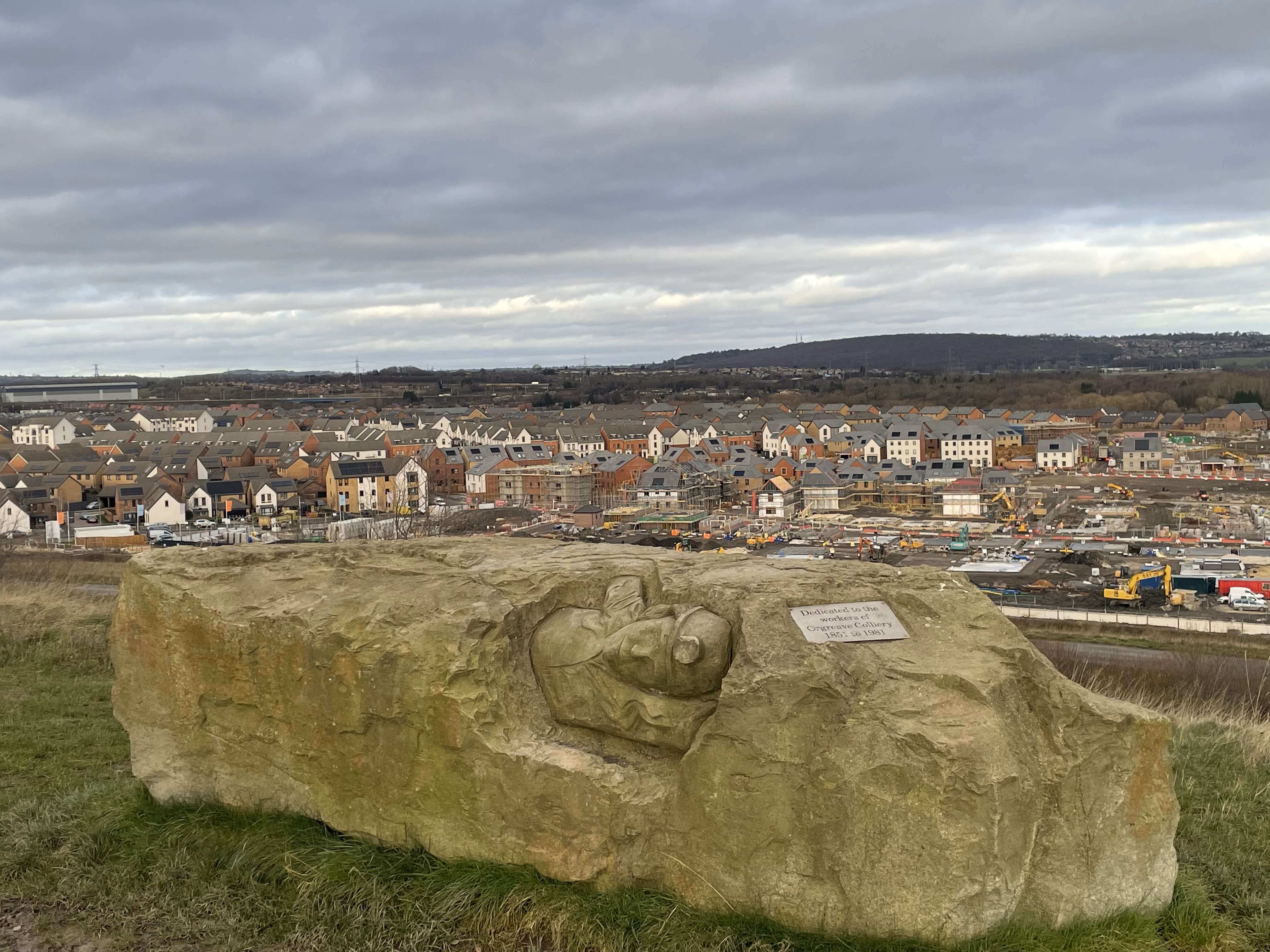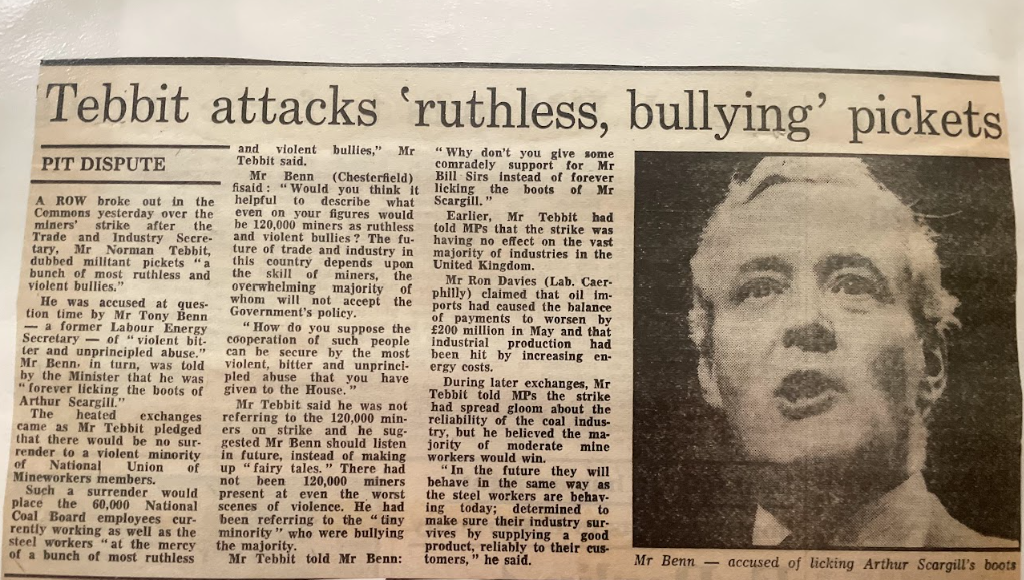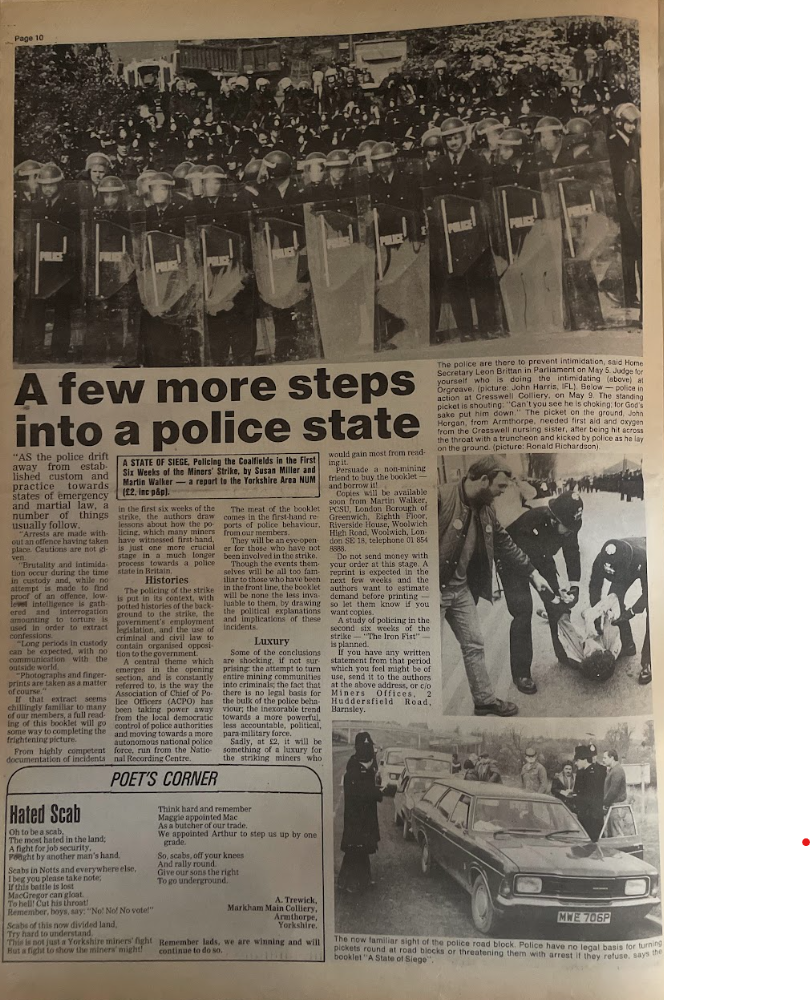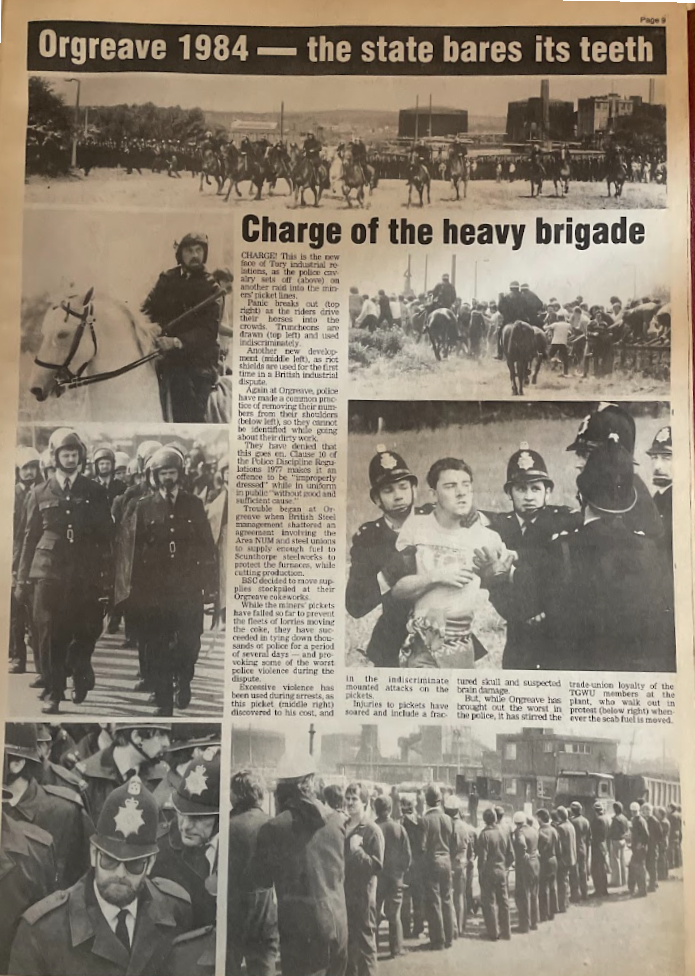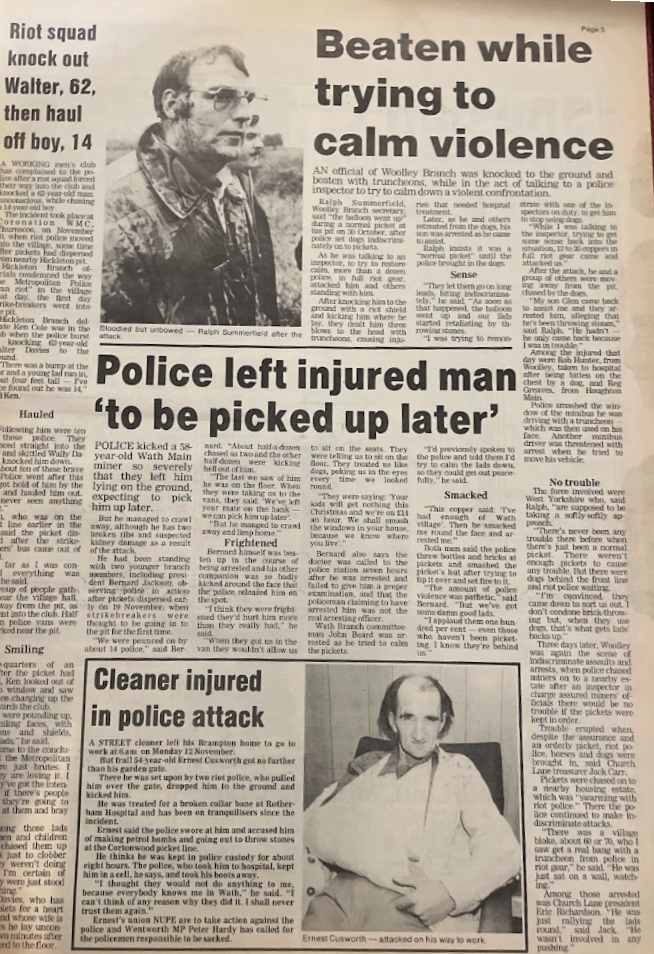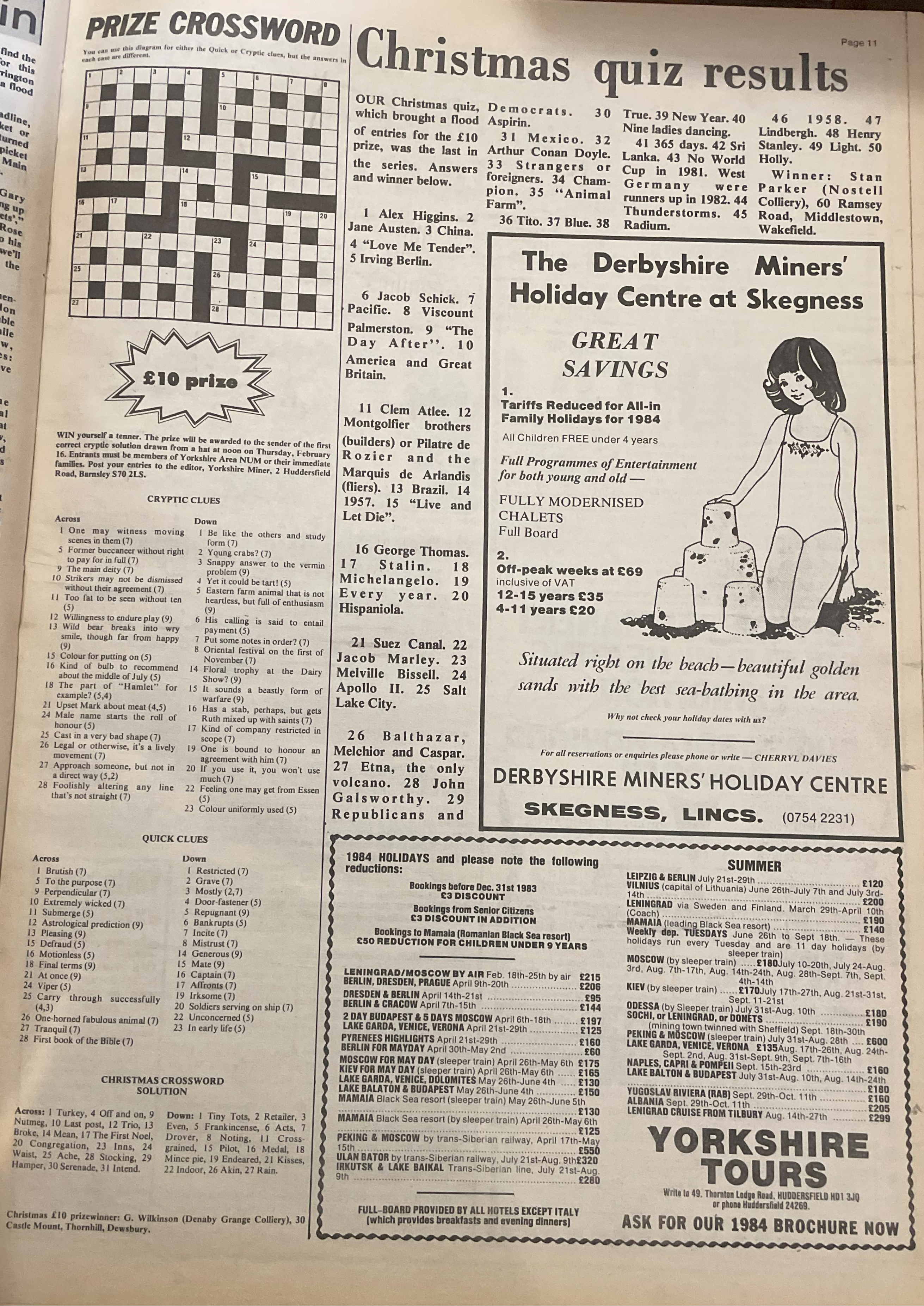Orgreave
A 40 year war for justice
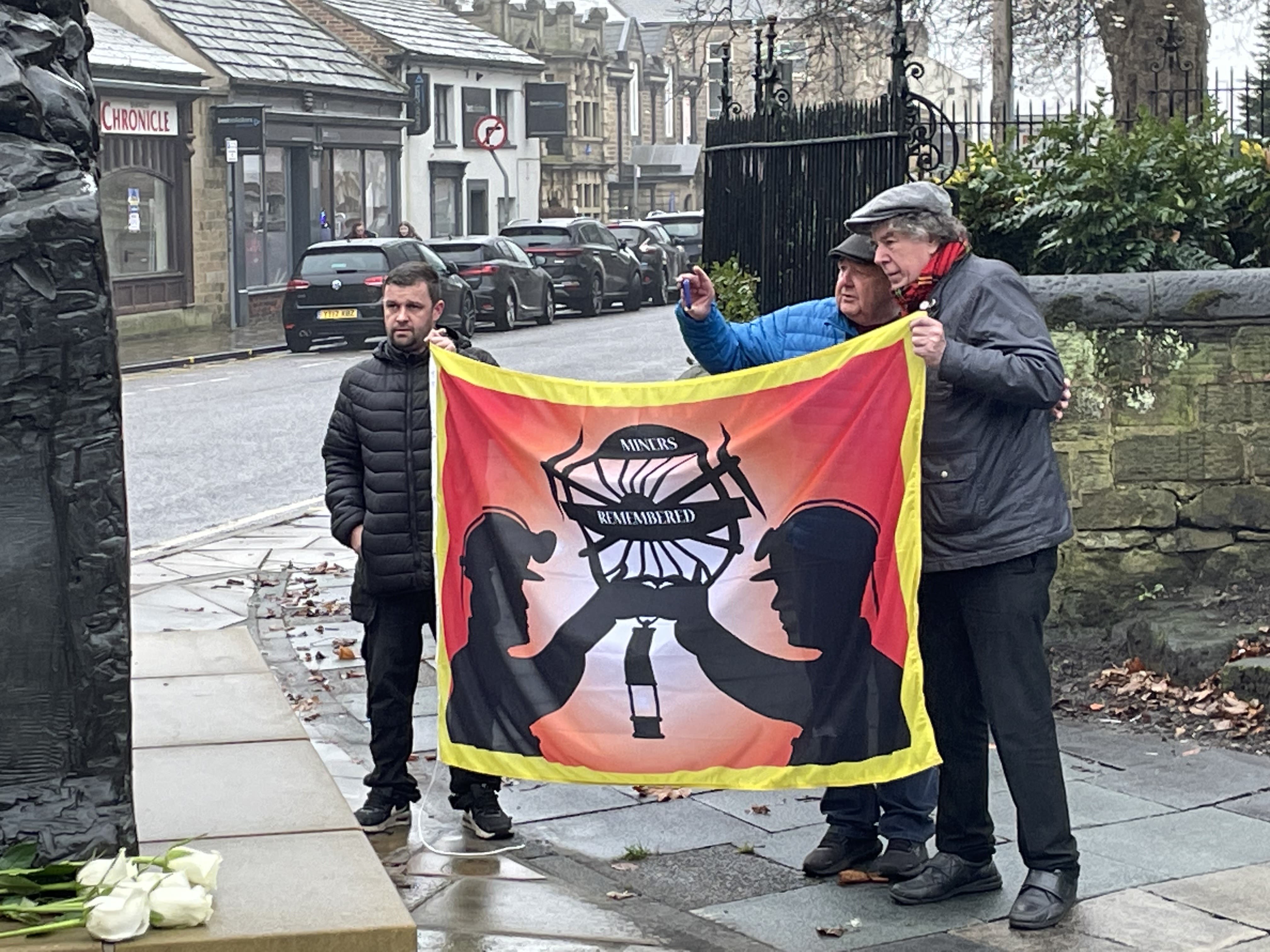
On the 18th of June 1984, Arthur Scargill and the NUM (National Union of Mineworkers) formed a demonstration outside a coking plant in Orgreave. The demonstration was a response to the National Coal Board's plans to close numerous pits across the UK, with its main focus to disrupt the transportation of coke (a coal-based fuel source) from Orgreave to Scunthorpe.
During previous demonstrations, police did all they could to disrupt and disassemble picketers, but suspiciously on this occasion, they ushered the demonstrators through. Leading them to a field south of the plant.
This field was swarmed with police officers: some mounted on horses, some decorated in riot gear and some leashing dogs. Many of these officers were equipped with truncheons and they surrounded most of the field, leaving only a small railway bridge at the top that led to Orgreave village.
A photo of the Orgreave Memorial, overlooking a nearby resedential estate
A photo of the Orgreave Memorial, overlooking a nearby resedential estate
After a few pushes against police lines, Assistant Chief Constable Clement ordered the police to charge. Miners were driven up the field towards the railway bridge and those who were caught were assaulted and detained. Leaving a notable amount of miners with serious injuries.
Overall, 120 miners and police officers were injured and 95 arrests were made, with 50 of those arrests being classified as "riot". A crime that if convicted, could have possibly led to life in prison.
The subsequent media reports painted the NUM as a violent mob and the South Yorkshire police as lawful mediators. The BBC used reversed footage from the event, showing police charging in response to missiles thrown, even though in reality the opposite was true.
Further publications such as The Sun praised the South Yorkshire police for an "amazing cavalry charge" that "broke up a bloody riot."
The Orgreave incident was one of many instances of a power struggle between the Tory government and the trade unions. A power struggle so intense and life-altering. A bit of historical context is needed to fully understand what happened at Orgreave and why it is still so important to citizens of South Yorkshire today.
"The Enemy Within"
A history of the political rivalry between government and union
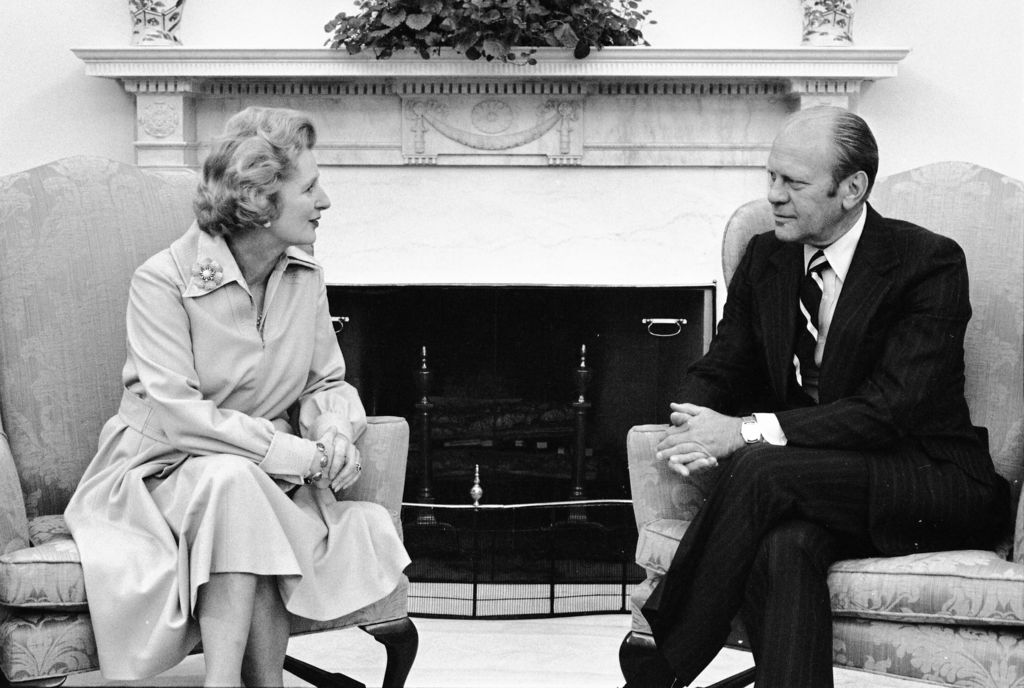
On the 19th of July 1984, almost a month after the events at Orgreave, Margret Thatcher, the Tory party leader, addressed a private congregation of Conservative Backbench MP's about her concerns involving the miners and their ongoing strike. During this meeting she would infamously say: "“We had to fight the enemy without in the Falklands, we always have to be aware of...
The Enemy Within."
"I've got a t-shirt with that on" said Paul Darrow, a former miner who picketed throughout the 1984-85 strike. He continued to say:
"Margret Thatcher was a new breed of conservative, we were the last union to stand, and she picked us off with her establishment mates.
"We had the press lying, we had police rioting, that's why we need an inquiry into Orgreave because how can we possibly face the future with such a massive gap in the past."
The contempt between the conservative party and the miners goes back decades, with the miners' strike of 1972-74 being a major escalation and potential origin of the divide.
Clayton Thomas, a Welsh steel trade unionist and University of Sheffield student during the 1984-85 strike said:
"The strike in 72-74 brought down the Tories. Thatcher never forgot that, so when she was elected leader, one of her main plans was to destroy the mining communities.
Her attacks against the trade unions, were attacks against the people, trade unions were about sticking together and that's something Thatcher never understood."
One of the most significant things that came out of the 1972-74 strike was the creation of the Ridley Plan. It was a strategic report created in 1977 by Conservative MP Nicholas Ridley, that focused on the power of the nationalised industry. laying out a roadmap on how to control and reduce union power.
The Plan included the proposal of making union strikes illegal and for the more "sensitive industries" a change in tax refunds and unemployment pay during strikes. It also suggested the fragmentation of the coal industry, creating smaller unions that would "allow the worker to link his reward with his own effort" and to facilitate denationalisation.
Unsurprisingly, when the strike officially started in March 1984, so did an all-out propaganda war between the unions and the government.
Due to this, the miner communities and unions stuck together, with the strike being mainly supported by those in working class areas and by neighbouring unions. Namely unions in the Steel and Shipbuilding industry. The picketers would also receive Strike funding from pro-socialist Countries, including Libya and Russia.
In addition to this, when the miners were picketing across Yorkshire, they were given free newspapers from The Morning Star. A media organisation that was paid for by the unions and functioned to give an alternative viewpoint to the mainstream press.
Paul said "I was proud to be a miner on strike, I was part of an active, organic movement where everybody was in the same boat and everyone was fighting for their jobs.
"The Morning Star was on our side, people used to say it didn't include all the viewpoints, but our viewpoint wasn't given to the people on the other side."
On this "other side" featured individuals with a variety of affiliations, with the most outspoken sectors being the Conservative government and mainstream publications.
The media at that time was very polarised. Even similar interest, strongly standing left wing publications went after the miners. Examples include The New Statesmen comparing the NUM to "oppressive regimes" and the Daily Mirror (at the time known as The Mirror) accusing Scargill of being corrupt, by using money donated from Libya and Russia to pay off his own mortgage. (An accusation that was later revealed to be untrue).
Whilst recounting to me how the media played a part during the miners' strike of 1984, Paul said: "It was like everybody was against us, we had no chance really, it's surprising we lasted 12 months."
An article from the Guardian published on the 5th of July 1984, about Conservative MP Norman Tebbit (the Secretary of State for Trade and Industry at the time) calling pickets "a bunch of most ruthless and violent bullies."
An article from the Guardian published on the 5th of July 1984, about Conservative MP Norman Tebbit (the Secretary of State for Trade and Industry at the time) calling pickets "a bunch of most ruthless and violent bullies."
An article published by The Yorkshire Miner two days after the Orgreave incident
An article published by The Yorkshire Miner two days after the Orgreave incident
The Front page of The Yorkshire Miner covering what happened at Orgreave
The Front page of The Yorkshire Miner covering what happened at Orgreave
An article published by The Yorkshire Miner, featuring stories of picketers being attacked by police
An article published by The Yorkshire Miner, featuring stories of picketers being attacked by police
An entertainment page from The Yorkshire Miner during the festive period of 1984
An entertainment page from The Yorkshire Miner during the festive period of 1984
Developments of an inquiry into Orgreave
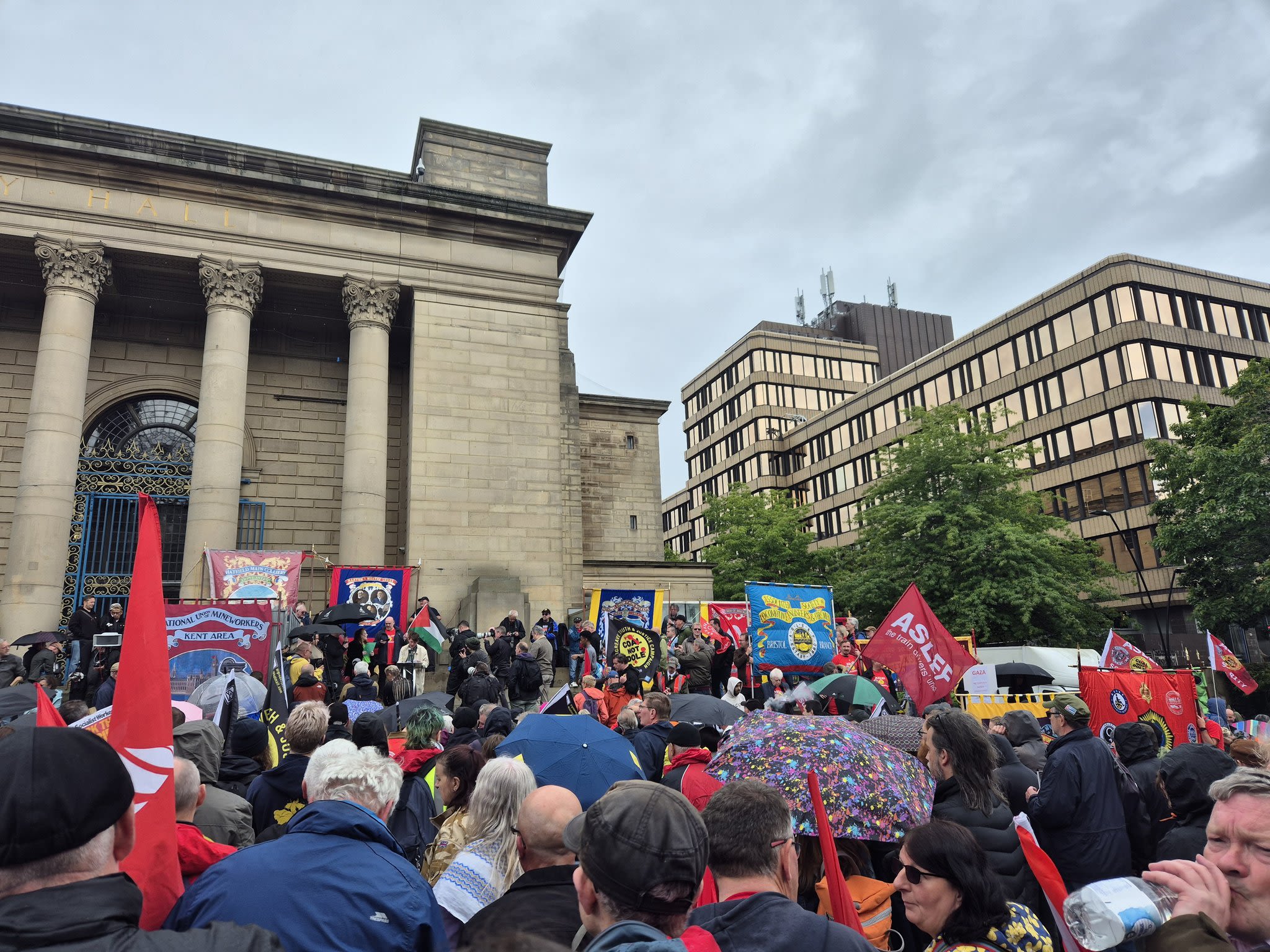
"They used to call it a medieval battle, it was more of a medieval massacre"
- The words used by Paul to describe his view of what happened at Orgreave.
He would later add:
"I have full support for the Orgreave Truth and Justice Campaign... What happened at Orgreave was a planned event and it's shown by how the police were organised, and how fast they clamped down on the picketers."
Whilst discussing Orgreave and if an inquiry was in the public interest with Chris Kitchen. (The General Secretary of the NUM) he said this:
"I think it is in the public interest, if we were set up at Orgreave I think the public needs to know it happened, from there we can make sure it doesn't happen to anyone else."
Since 1984, there have been many developments in the journey for a public inquiry into Orgreave. With rejections resting on the fact that: no deaths occurred, no-one was convicted and that so much time has passed, that there is no comparison between how police acted at Orgreave vs how they act in the modern day.
However, some people question whether the police have improved their conduct that much since Orgreave. Citing dilemmas such as the Spycops Inquiries. Specifically, the Brian Higgins case. A case where undercover cops recorded a speech made about working conditions at a construction company. Then sent it to the MI5 and other security services. Leading to the man who made the speech (Brian Higgins), being silently blacklisted from working at some of the biggest construction companies in the UK.
Overall, many miners and their families argue an inquiry would bring them closure. Allowing them to fully move on and understand what really took place at Orgreave on the 18th of June 1984.
Although an inquiry into Orgreave is looking very likely. Organisations such as the Orgreave Truth and Justice Campaign are really pushing for an inquiry to be taken as soon as possible.
Showing that for miners and their families, time is really of the essence. As the more time that passes without an inquiry, the smaller the number of miners who will be around to receive the information they have been fighting for.
The IOPC have been approached for a comment on if their opinion on an inquiry has changed since 2015, but at the time of publication, they are yet to respond.
A timeline of events leading to a possible inquiry
A timeline of events leading to a possible inquiry
